Thanks to strong research, well-educated talent, and public support, Europe is ready for the next wave of deep-tech

The opportunities in deep-tech are vast, but realizing them requires concerted effort, strategic investment, and a long-term vision, a Dealroom study shows.
If there’s anything that can solve Europe’s most significant challenges, it’s deep-tech. This field of technology, defined as “fundamentally new science and engineering making its debut in products and companies“, is at the forefront of the next wave of technological revolution. According to a new report by Dealroom, Europe has what it takes to become a global hub for Deep Tech excellence: Strong fundamental research, well-educated talent, more public support than ever, and positive citizen sentiment.


The report delves into the factors making Europe a deep-tech breeding ground. Key among these is the continent’s rich academic and research infrastructure, providing a steady stream of innovation and talent. Moreover, Europe’s diverse cultural and economic landscape fosters a variety of approaches to problem-solving, fueling creative and innovative solutions, the report says. Europe ranks second behind the US in many frontier technologies. “To reap the benefits of this research, Europe needs to act as one continent”, according to Dealroom.

Roots in academia
Many European Deep Tech successes have their roots in academia. Some of the most valuable companies in Europe have spun out from universities. Among the most valuable spinouts are companies like Biontech (Mainz) and Climeworks (Zürich). But also on a local level, the academic spinouts are important. Jeroen van Woerden, managing director of The Gate, the start-up incubator in Eindhoven says his organization is constantly focusing on the creation of new deep-tech propositions for start-ups. “We use our data to keep track of how many spin-offs and start-ups originate from this region. The Eindhoven University of Technology is an important supplier in this. Eindhoven’s high score in this European report is not a surprise but a fantastic result of good cooperation with many parties, such as BOM, Brainport, Braventure and the industry in the region’s startup ecosystem. It is a great place to start deep-tech startups and then grow as scaleups. Think of examples like Smart Photonics, ANTENNEX, Helia Biomonitoring and Mantispectra.”
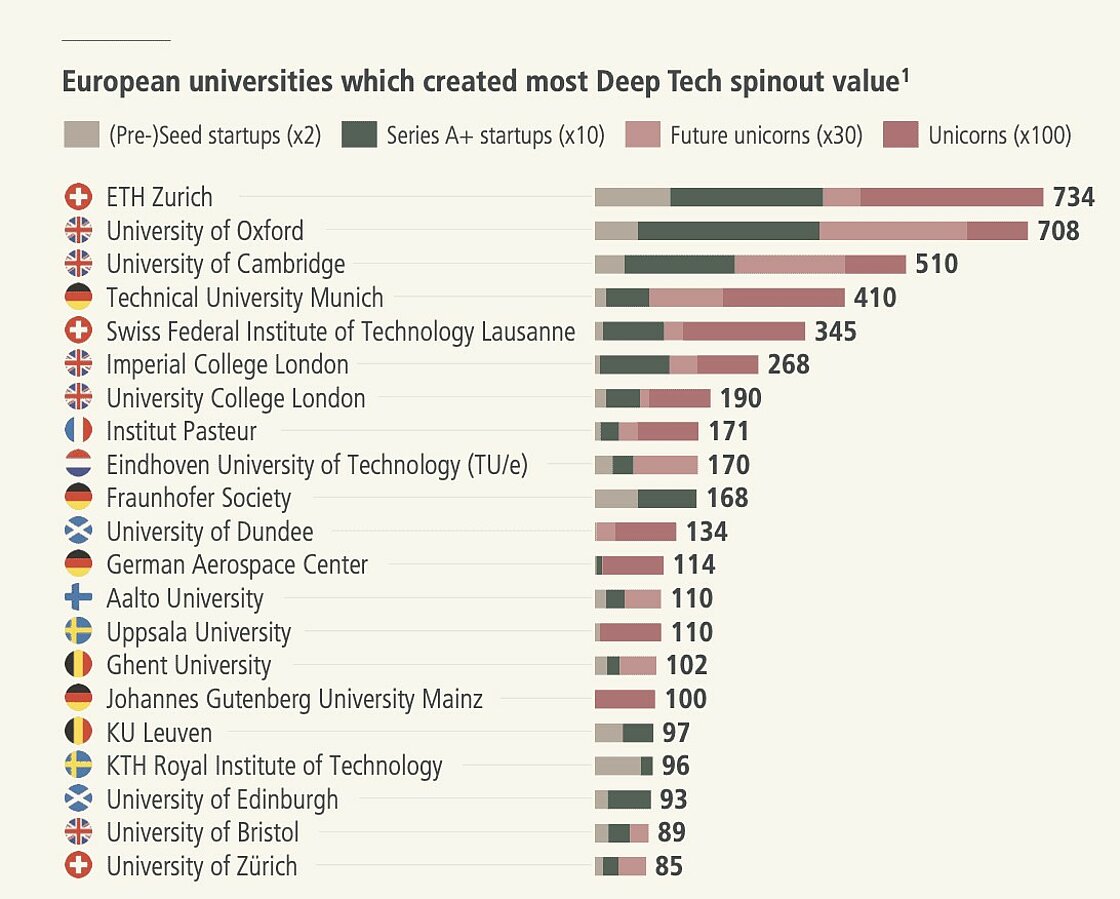
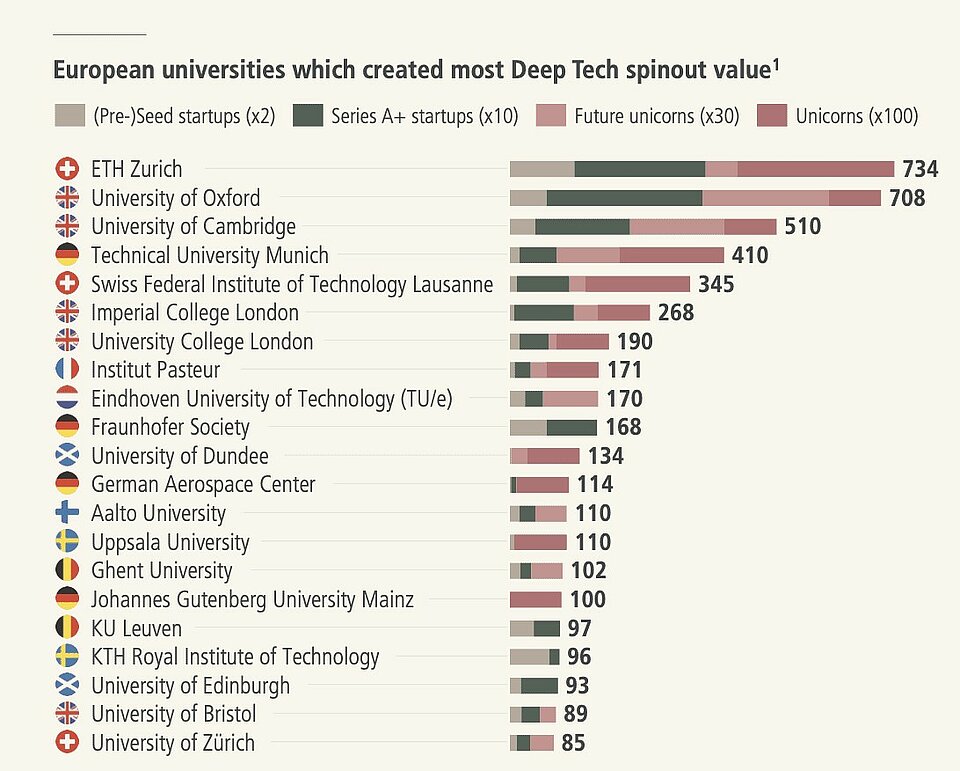
Government policies
Government policies and funding mechanisms also play a crucial role. Many European countries have proactively supported research and development, recognizing the long-term value of investing in deep tech. This support is not just financial; regulatory frameworks are also evolving to accommodate and encourage innovation in fields like AI, biotech, and renewable energy.
For the Netherlands, organizations such as Invest-NL and Techleap are essential, but regional investment companies such as OostNL, Innovation Quarter, and BOM also play a crucial role. Marc Jansen, managing director of investments at BOM, the most active investor in the Netherlands over the past 5 years, is pleased to see Eindhoven and Brabant climbing the rankings. “This is based on a strong technological foundation of established companies, excellent science, and a strong collaboration culture. Current developments within more than 1,400 startups and scaleups in Brabant predict a further rise over the next 5 years.” Jansen also sees an increasing number of investors contributing to this development. “We would also like to welcome other investors into our community to join us in catalyzing change."
Where Europe leads
The report highlights several sectors where Europe is taking the lead. In renewable energy technologies, European companies are at the cutting edge, driven by the continent’s commitment to sustainability and green initiatives. Biotechnology is another area where Europe excels, with a strong pipeline of innovations stemming from its world-class healthcare and pharmaceutical sectors.
Artificial Intelligence (AI) and robotics are also areas of significant growth. European start-ups and established companies are making notable strides in these fields, thanks partly to a collaborative ethos that often sees academia, industry, and government working hand-in-hand.
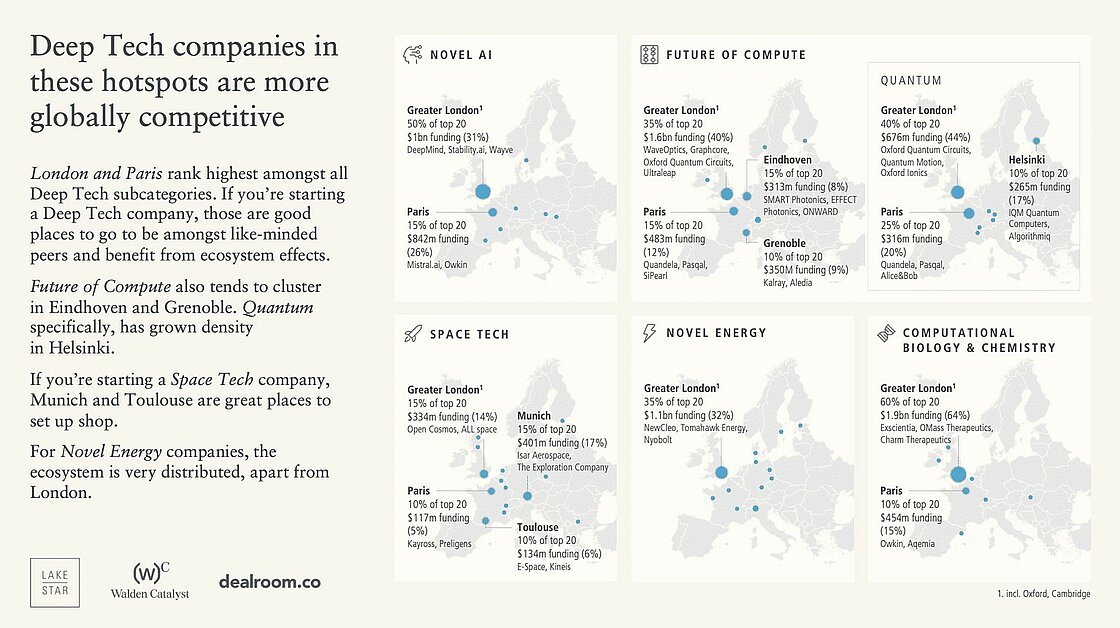
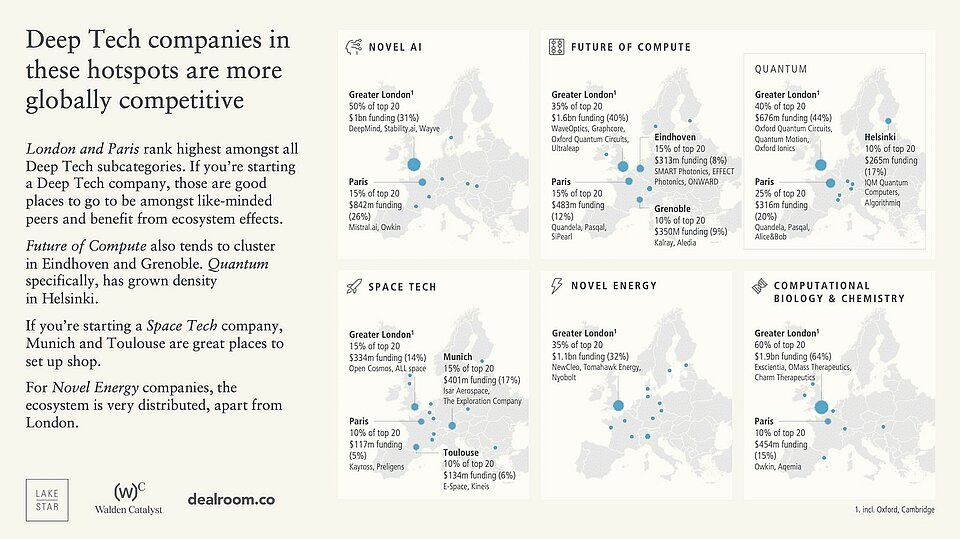
Challenges
While the prospects are bright, the path is not without challenges. The report identifies several areas where Europe needs to be vigilant to maintain its momentum. One key challenge is funding. Despite growing interest from investors, there’s a need for more capital to support the long development cycles typical of deep tech ventures. Talent retention and attraction are also critical. With global competition for skilled professionals intensifying, Europe must continue cultivating and attracting top talent to drive its deep tech ambitions forward.
Lacking entrepreneurship is another hurdle. The report: “Some of the biggest challenges that remain in Europe are to encourage more entrepreneurs to move into deep-tech, to harmonize university spinout terms, to stress the importance of governments and corporations as customers, to strengthen the exit channels, and to promote diversity across founders & investors.”
The Investment Landscape
Investment in deep tech is evolving. Traditional venture capital models are being adapted to accommodate the unique risk profiles of deep-tech startups, which often feature high technological risks but lower market risks. This shift is seeing the emergence of specialized funds and investment vehicles geared towards the specific needs of deep tech companies.
Moreover, the report suggests that successful deep tech investing requires a different approach. Investors need to be patient, knowledgeable about the technologies, and willing to engage deeply with the companies they back.
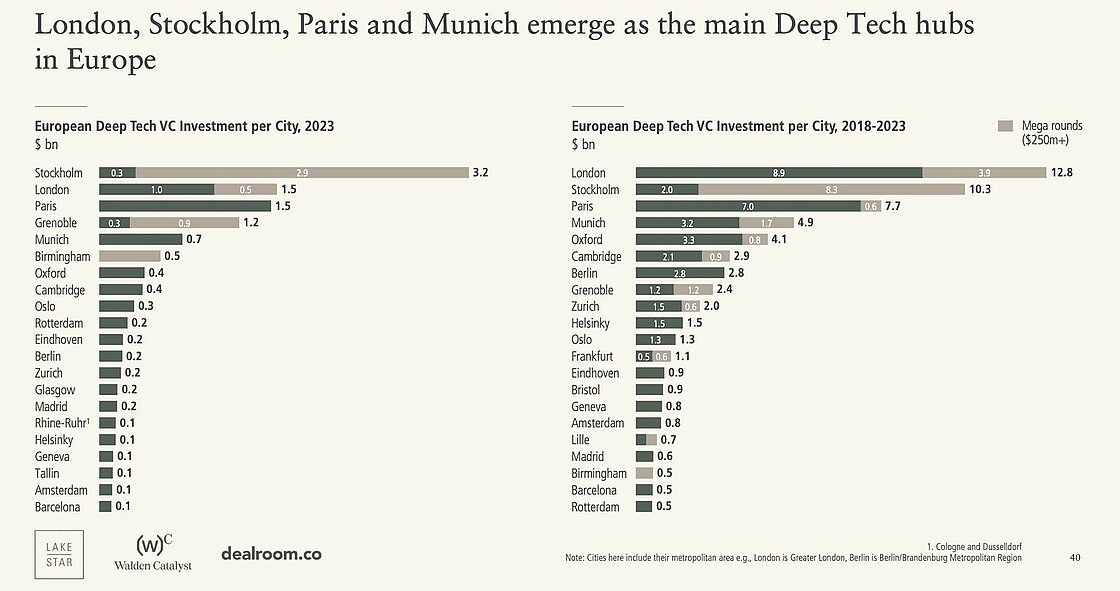
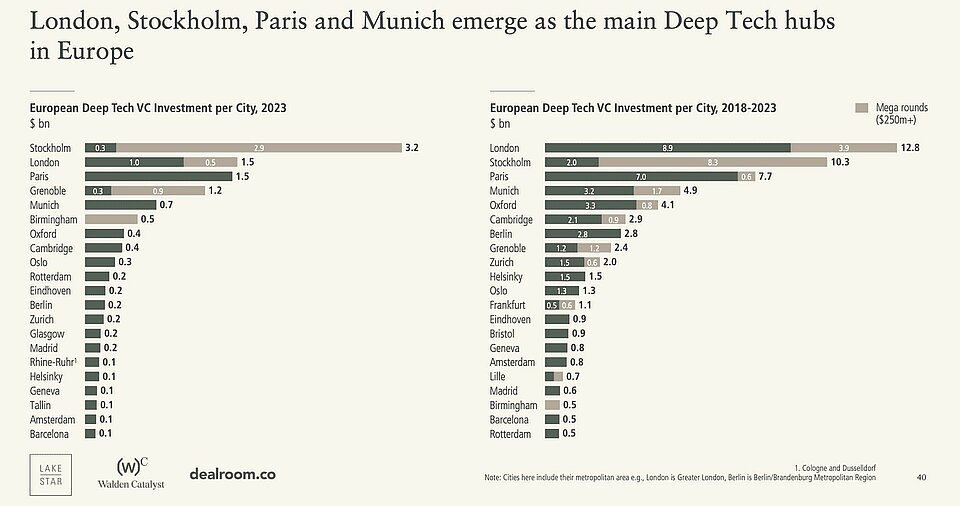
Call to action
The 2023 European Deep Tech Report not only lays out the current landscape but also serves as a call to action for policymakers, investors, and industry leaders. The message is clear: the opportunities are vast, but realizing them requires concerted effort, strategic investment, and a long-term vision.
Europe is well-positioned to lead in the deep-tech revolution. The continent’s journey in this high-stakes, high-reward domain is about economic growth and shaping a future where technology serves humanity’s most pressing needs.

